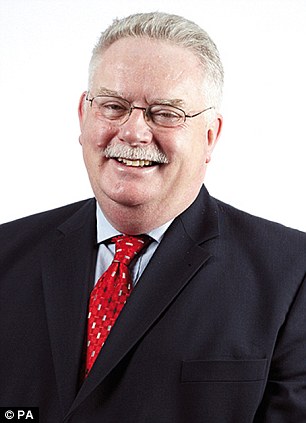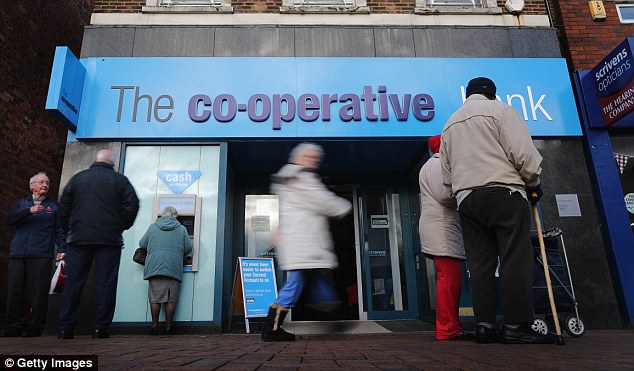Dominic Lawson
November 25, 2013

Forget – as you probably will want to – the sordid sexual shenanigans of the former chairman of the Co-operative Bank, the Reverend Paul Flowers. The question that must remain in all our minds is this: why in 2010 did the Financial Services Authority approve the appointment of this man to preside over a bank with almost £50 billion of assets and 4.7 million customers?
As everyone now knows, he had no career banking experience – bar a few years as a teller, immediately after leaving school.
Bear in mind that one of the lessons of the collapse of the giant banks RBS and HBOS was that both had been chaired by men with no hands-on experience of banking – neither Sir Tom McKillop (RBS) or Lord Stevenson (HBOS) had the faintest understanding of the complicated financial debt instruments on which the deposits of millions had been risked.
Yet despite these disastrous examples, the FSA approved Flowers’s appointment to chair the Co-op Bank, even after he had been a member of the board that pushed through a calamitous merger with the Britannia Building Society, which now threatens the solvency of the entire enterprise.
Nor were questions later raised about his fitness to chair the bank, even though in 2011 he had resigned as Labour councillor in Bradford after ‘inappropriate adult content’ was found on his work laptop.
This material would have been gay pornography. Flowers — and quite clearly he can’t be criticised for this — made no secret of his homosexuality and was a patron of the Terrence Higgins Trust, the HIV-Aids charity.
Now here is where the Methodist minister — a ringer for Uncle Monty from Withnail And I, as portrayed by the late Richard Griffiths — ticked at least one of the FSA’s boxes. The organisation (which this year has finally been split up and stripped of its banking regulation role) had become obsessed with the fashionable issue of ‘diversity’.
This did not mean that its staff were interested in differences of opinions on financial regulation: the term, in its bureaucratic meaning, refers only to sexual and ethnic identity. It was New Labour, under Gordon Brown’s chancellorship, which had foolishly moved banking regulation from the Bank of England to the FSA: as if in gratitude the FSA slavishly endorsed the so-called ‘equalities agenda’ which that government regarded as its social mission.

So the FSA began sending out voluminous questionnaires to banks, demanding to know about the sexual identities of their employees, and what they were doing to ensure that an appropriate proportion of their staff could be regarded as members of the ‘LGBT community’ — that is lesbian, gay, bisexual and transgender, for those unfamiliar with the terminology.
It was determined to set an example itself: its most recent (and exhaustive) ‘annual diversity report’ exults that ‘on sexual orientation, we rose to 109th out of the 376 employers across Britain who entered Stonewall’s Workplace Equality Index. We were at 138th place the previous year and are pleased to have been recognised for the improvements we continue to make for lesbian, gay, bisexual and transgender staff.’
In this context, it is easy to imagine that the FSA would see the appointment of the Rev Paul Flowers as a wonderful example to set to the insufficiently socially aware financial services industry: the first openly gay chairman of a significant British bank.
The chairman of the House of Commons Treasury Select Committee, Andrew Tyrie, expressed incredulity when Flowers, appearing before him a few weeks ago, seemed to have no clue about the scale of the assets for which he had fiduciary responsibility.
Perhaps, instead of apologising, Flowers should have declared that although he had been wrong to say they had amounted to around £3 billion — approximately £44 billion below the true figure — he could answer any question Tyrie might like to put about the Co-op Bank’s stellar performance in responding to the FSA’s demand for greater ‘diversity’. On second thoughts, it was better that he didn’t.
The austere and forensic Tyrie is one of those old-fashioned types who thinks that banks should be run by those best qualified to do so, regardless of how many ‘equalities’ boxes might be ticked by the directors who have fouled things up enough to require interrogation by his committee.
In other forums, however, Flowers’s sexuality does seem to have afforded him some protection. I wonder if the Left-of-Centre press (not to mention the Reverend’s former colleagues in the Labour Party-affiliated Co-operative movement) would have been be so reluctant to criticise him if it had been female teenage prostitutes he had been cavorting with; or if it had been pornographic pictures of women that he had been ogling on his official laptop.
But as a member of the ‘LGBT community’, Flowers can somehow be seen as part of an oppressed minority, whom it would be politically incorrect to denounce as a sexual predator.
This is not to say that I believe that Flowers’s behaviour — crystal meth, ketamine and all — would have been any less grotesque if it had been conducted only with members of the opposite sex.
